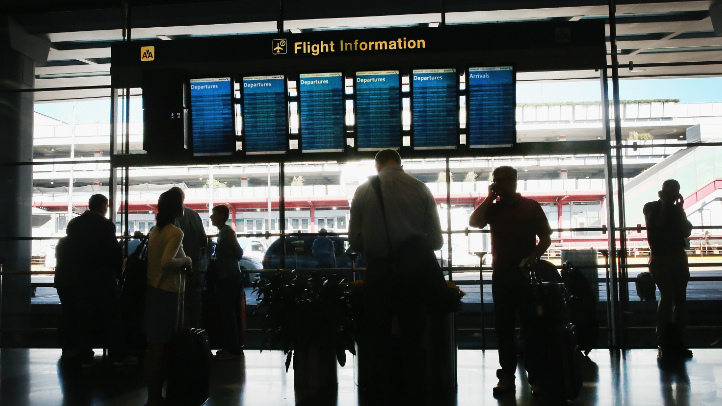Illinois residents may have tens, hundreds, even thousands of dollars just waiting for them to claim, but NBC5 Investigates found the process to get it can be so difficult, some people simply give up.
When John O’Kelly saw an ad for the Illinois iCash website, he went to his computer and logged on. There he found an online search tool allowing him hunt for money that may be sitting around, held by the state of Illinois, waiting to be claimed by him or his relatives.
Every state in the country has something similar to Illinois iCash: A website where you can go looking for unclaimed cash that might be due to you. The money might be an old insurance policy, or a refund for a rental deposit, or a lost stock certificate – or one of many other types of cash that – over time – has simply been forgotten. It is the job of an official in each state – usually the state’s treasurer – to hold on to all of these unclaimed funds and try to reunite them with their owners.
In Illinois, that’s the job of State Treasurer Michael W. Frerichs.
“We safeguard about $2 billion,” Frerichs says. “That’s over 14 million properties. And it’s my job to get that money into the hands of Illinois residents.”
Sure enough, when O’Kelly searched the iCash website, he found some money due to his wife and her sister. The total was only about $160, but it was enough that O’Kelly started the process to try to get it back.
“I figured this was going to be pretty easy,” O’Kelly said. “Surprise, surprise.”
Local
O’Kelly and his wife endured months of repeated back-and-forth correspondence with the state, which was asking for certified documents and notarized forms, all to prove that O’Kelly’s wife was due the $160.00. Eventually, the O’Kellys decided to give up, but not before contacting their local state representative to let him know how frustrating the process had been. Within a few weeks of sending that letter, the state sent the O’Kellys their money.
“Bottom line,” O’Kelly said, “we spent $119.00 to get documentation and certified copies of things, so the net result was $47.00 – and my wife had to split that with her sister.”
Their final take of the unclaimed $160.00: $23.50.
Frerichs says the last thing he wants to do is complicate the process, but – even more -- he doesn’t want to send the money to the wrong person.
“We want to make sure we do this right,” Frerichs said. “And we want to get the money into the hands of the person it belongs to.”
But NBC5 Investigates also found there are piles and piles of unclaimed money – more than 15,000 different sets of funds -- that should go into the coffers of local governments – cities, school districts, counties, even the state itself. These millions have sat, unclaimed, often for decades, when they could have been put back into circulation to pay government and salaries and bills – if only the towns or counties or state would take the initiative to get it back.
“We would love to get that money into the hands of taxpayers,” Frerich said, “but these units of government have to claim it.”
NBC5 was not able to determine the exact amounts of every fund due to the towns, counties, and state departments of Illinois, because of a state law that prohibits the treasurer’s office from sharing such specific information. But beyond the money held in Illinois, NBC5 also found hundreds of thousands of dollars sitting unclaimed by Illinois government in 43 other states, some of which do list the amounts of each individual unclaimed fund.
For example, one check due to the Chicago Transit Authority, currently held in Texas, is worth $7,999.56 alone, yet has sat, unclaimed, for the past six years. Another example: Dozens of funds, held in California, waiting to be claimed by officials in Cook County. One of those funds worth $12,100.87 alone. Another is worth $29,711.20. A third is worth $43,080.36 – just three of the dozens of sets of funds that Cook County government could claim for its coffers, but has not.
When NBC5 showed the Illinois Secretary of State’s office a list of the 409 pieces of unclaimed funds due to them, the office immediately got to work to claim the money from the Illinois Treasurer. According to a spokesman, the office has now discovered that it’s due more than $36,000 and has now started the process to recover that money.
Meanwhile, Frerichs says his office is intent on making changes that would streamline the process, to make it easier for individuals to pry loose the unclaimed money due to them.
One bill currently making its way through the General Assembly would allow state officials to proactively match other state agencies’ data on individuals with data listed on pieces of unclaimed property. It would then send those “matching” individuals the money due to them without anyone having to file a claim.
“When I came in, there had not been changes [to the unclaimed property procedures] since 1992, at a time before the Internet was contemplated,” Frerichs says. “We are bringing our system into the 21st century.”



